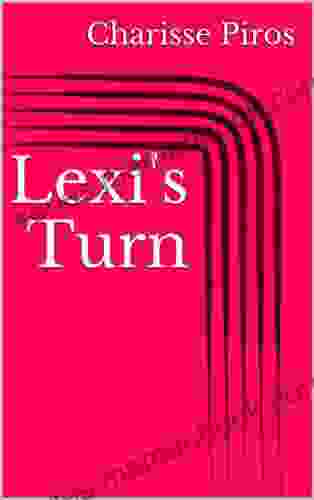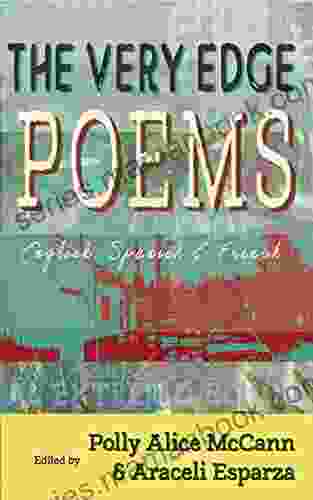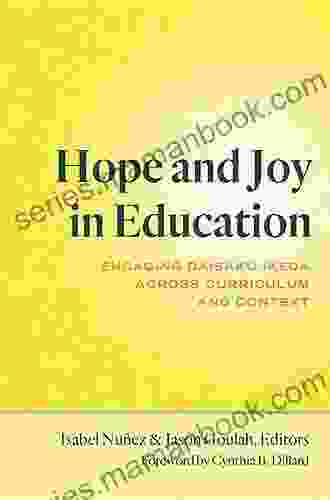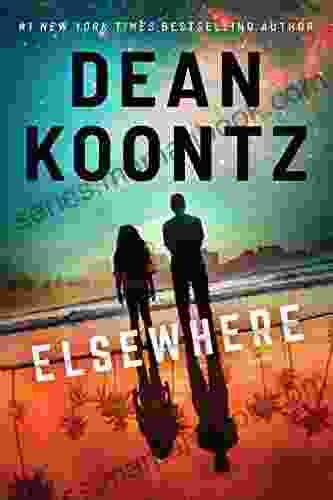Engaging Daisaku Ikeda Across Curriculum and Context: Fostering Global Citizenship and Sustainable Development

In a rapidly changing and interconnected world, education has a critical role to play in preparing young people to navigate the complexities of the 21st century. Traditional educational models often fall short in equipping students with the skills, knowledge, and values necessary to address global challenges such as inequality, climate change, and conflict. To address this need, educators are increasingly turning to innovative and transformative approaches that foster global citizenship and sustainable development.
One such approach is the integration of Daisaku Ikeda's philosophy and principles into curriculum and teaching practices. Ikeda, a renowned peacebuilder, philosopher, and educator, has dedicated his life to promoting human dignity, compassion, and the interconnectedness of all life. His teachings offer a wealth of insights that can help educators create learning environments that empower students to become active and responsible citizens, committed to social justice, peacebuilding, and sustainable development.
This article explores the transformative potential of engaging Daisaku Ikeda across curriculum and context. By examining how Ikeda's teachings can be integrated into various disciplines, we will demonstrate how educators can foster a holistic and meaningful learning experience for students, one that prepares them to meet the challenges of the 21st century with empathy, compassion, and a commitment to building a better world.
4.5 out of 5
| Language | : | German |
| File size | : | 862 KB |
| Text-to-Speech | : | Enabled |
| Screen Reader | : | Supported |
| Enhanced typesetting | : | Enabled |
| Print length | : | 44 pages |
| Lending | : | Enabled |
Daisaku Ikeda's philosophy is rooted in the Buddhist principles of compassion, non-violence, and respect for the dignity of all living beings. He believes that education is the key to creating a just and peaceful society, and that it should empower individuals to develop their full potential and contribute to the well-being of others.
Ikeda's teachings emphasize the importance of:
- Human dignity: Recognizing the inherent value and worth of every individual, regardless of their race, gender, religion, or background.
- Compassion: Cultivating empathy and understanding for others, and actively working to alleviate suffering.
- Global interconnectedness: Understanding the interdependence of all life on the planet, and recognizing our shared responsibility for the well-being of both present and future generations.
These principles are deeply relevant to education, as they provide a framework for creating learning environments that are inclusive, compassionate, and empowering. By integrating Ikeda's teachings into curriculum and teaching practices, educators can foster a sense of global citizenship in students, and inspire them to become agents of positive change in the world.
Engaging Daisaku Ikeda across curriculum involves more than simply adding his quotes or ideas to existing lesson plans. It requires a deep understanding of his teachings and a commitment to creating learning experiences that are transformative and meaningful for students.
Here are some practical strategies for integrating Ikeda's philosophy across disciplines:
Language Arts: Explore Ikeda's writings and speeches to teach students about the principles of human dignity, compassion, and global interconnectedness. Use his works as a basis for discussions on social justice, peacebuilding, and sustainable development.
Social Studies: Examine historical events and current issues through the lens of Ikeda's philosophy. Encourage students to analyze the root causes of conflict and inequality, and to develop strategies for promoting peace and social harmony.
Science: Teach students about the interconnectedness of all life on Earth, and the importance of preserving the environment. Use Ikeda's writings to inspire students to take action to protect the planet for future generations.
Mathematics: Use Ikeda's emphasis on interconnectedness to teach students about the interconnectedness of numbers and mathematical concepts. Encourage students to explore the patterns and relationships that exist in the world around them.
Arts: Engage students in creative activities that express the principles of human dignity, compassion, and global interconnectedness. Encourage students to use their creativity to promote peace, social justice, and environmental sustainability.
The following are examples of how Ikeda-inspired teaching practices can be implemented in the classroom:
- Creating a compassionate classroom environment: Establishing a classroom culture where students feel safe, respected, and valued. Encouraging students to practice empathy and understanding towards one another.
- Integrating social justice issues into curriculum: Exploring social justice issues such as poverty, inequality, and discrimination, and encouraging students to take action to address these issues.
- Promoting peace education: Teaching students about the causes and consequences of conflict, and developing strategies for conflict resolution and peacebuilding.
- Encouraging environmental stewardship: Emphasizing the importance of environmental protection and sustainability, and empowering students to take action to protect the planet.
- Developing global perspectives: Encouraging students to develop a global perspective, and to understand the interconnectedness of the world's people and cultures.
Engaging Daisaku Ikeda across curriculum and context has the potential to transform education and empower students to become active and responsible citizens, committed to social justice, peacebuilding, and sustainable development. By integrating Ikeda's teachings into curriculum and teaching practices, educators can create learning environments that are inclusive, compassionate, and empowering, and that prepare students to meet the challenges of the 21st century with empathy, compassion, and a commitment to building a better world.
As Ikeda himself has said, "The ultimate goal of education is to foster individuals who, while possessing a rich humanity, are capable of thinking and acting independently, with a global perspective, and with a spirit that is imbued with the noble ideals of peace, culture, and democracy." By engaging Ikeda's philosophy across
4.5 out of 5
| Language | : | German |
| File size | : | 862 KB |
| Text-to-Speech | : | Enabled |
| Screen Reader | : | Supported |
| Enhanced typesetting | : | Enabled |
| Print length | : | 44 pages |
| Lending | : | Enabled |
Do you want to contribute by writing guest posts on this blog?
Please contact us and send us a resume of previous articles that you have written.
 Top Book
Top Book Novel
Novel Fiction
Fiction Nonfiction
Nonfiction Literature
Literature Paperback
Paperback Hardcover
Hardcover E-book
E-book Audiobook
Audiobook Bestseller
Bestseller Classic
Classic Mystery
Mystery Thriller
Thriller Romance
Romance Fantasy
Fantasy Science Fiction
Science Fiction Biography
Biography Memoir
Memoir Autobiography
Autobiography Poetry
Poetry Drama
Drama Historical Fiction
Historical Fiction Self-help
Self-help Young Adult
Young Adult Childrens Books
Childrens Books Graphic Novel
Graphic Novel Anthology
Anthology Series
Series Encyclopedia
Encyclopedia Reference
Reference Guidebook
Guidebook Textbook
Textbook Workbook
Workbook Journal
Journal Diary
Diary Manuscript
Manuscript Folio
Folio Pulp Fiction
Pulp Fiction Short Stories
Short Stories Fairy Tales
Fairy Tales Fables
Fables Mythology
Mythology Philosophy
Philosophy Religion
Religion Spirituality
Spirituality Essays
Essays Critique
Critique Commentary
Commentary Glossary
Glossary Bibliography
Bibliography Index
Index Table of Contents
Table of Contents Preface
Preface Introduction
Introduction Foreword
Foreword Afterword
Afterword Appendices
Appendices Annotations
Annotations Footnotes
Footnotes Epilogue
Epilogue Prologue
Prologue Polly Alice Mccann
Polly Alice Mccann Minnie Bruce Pratt
Minnie Bruce Pratt Lesley Eames
Lesley Eames Michael Angus
Michael Angus Marie L Thomas
Marie L Thomas Ben Rinner
Ben Rinner Heidi Mccrary
Heidi Mccrary Edward Jones
Edward Jones Chris Merchant
Chris Merchant Rose Mannering
Rose Mannering Dave Bio Baranek
Dave Bio Baranek Tite Kubo
Tite Kubo Craig Childs
Craig Childs Sierra Crane Murdoch
Sierra Crane Murdoch Jackson Coppley
Jackson Coppley Jeff Davidson
Jeff Davidson John Troughton
John Troughton Ben Elton
Ben Elton John Steinbeck
John Steinbeck Yusra Laila Visser
Yusra Laila Visser
Light bulbAdvertise smarter! Our strategic ad space ensures maximum exposure. Reserve your spot today!

 Tom HayesLexi Turn Charisse Piros: The Empowering Journey of an Inspiring Advocate for...
Tom HayesLexi Turn Charisse Piros: The Empowering Journey of an Inspiring Advocate for... Julio Ramón RibeyroFollow ·12.5k
Julio Ramón RibeyroFollow ·12.5k Easton PowellFollow ·6.2k
Easton PowellFollow ·6.2k Kenzaburō ŌeFollow ·10.7k
Kenzaburō ŌeFollow ·10.7k John ParkerFollow ·14.3k
John ParkerFollow ·14.3k Ervin BellFollow ·7k
Ervin BellFollow ·7k Jamie BlairFollow ·16.5k
Jamie BlairFollow ·16.5k Gerald ParkerFollow ·16.9k
Gerald ParkerFollow ·16.9k Arthur Conan DoyleFollow ·13.1k
Arthur Conan DoyleFollow ·13.1k

 David Mitchell
David MitchellMy Surly Heart: Poetic Expressions of Unrequited Love...
In the annals of...

 Jake Carter
Jake CarterBleach Vol. 50: The Six Fullbringers - A Comprehensive...
Bleach Vol. 50, titled "The Six...

 Edward Reed
Edward ReedThe Art of Simple Food II: A Masterclass in Culinary...
In an era of culinary excess, where meals...

 Jarrett Blair
Jarrett BlairThe Easy Ingredient Ketogenic Diet Cookbook: Your Gateway...
The ketogenic diet,...

 Larry Reed
Larry ReedThe Very Edge Poems Polly Alice Mccann: A Poetic...
An to 'The Very...

 Sidney Cox
Sidney CoxThe Keys of Death and Hades: Unlocking the Epic of...
In the realm of mythology...
4.5 out of 5
| Language | : | German |
| File size | : | 862 KB |
| Text-to-Speech | : | Enabled |
| Screen Reader | : | Supported |
| Enhanced typesetting | : | Enabled |
| Print length | : | 44 pages |
| Lending | : | Enabled |










